Deborah J. Ross's Blog, page 144
April 5, 2013
Space Opera Fridays: Judith Tarr on From Fantasy to Forgotten Suns

Forgotten Suns is
a “heart book”—an Attack Novel that grabbed me by the throat and refused to let
me go until it was more than halfway done. Now it has me again, as I’ve set
aside other projects to oversee the Kickstarter that has already reached its
funding goal and is now advancing toward (I hope) wonderful professional cover
art and a print as well as a digital edition.
I didn’t know it was a space opera at first. I just knew
that there was a planet out there, which used to be inhabited but for the most
part no longer was. I didn’t know why it was empty, or where the people had
gone. I started writing the novel to find the answers. Then as those answers
took shape (or as I took dictation—because Attack Novels are like that), I realized
that there were starships. And space pirates. And devices that could shatter
worlds.
Why all these things? Why science fiction? I’m known as a
fantasy writer, after all. Fans beg me for more rooted-in-real-facts historical
fantasy. One of the projects that’s in the to-be-written pile now is alternate
history with a fantasy component. Another is the kind of historical fantasy I’m
known for. I’m excited about both, and looking forward to both.
But here we are, rampaging down the spaceways with a group
of renegades and runaways, and as I write this, we’re about to meet the
sentient starship. My brain, which has a weird slant, is showing me ways to put
the “opera” in space opera.
That’s not a brain that fits itself into tidy marketing
categories. The first rejection I ever received for a novel, from the legendary
Lester Del Rey, was extremely kind and complimentary, and very detailed—he went
on for pages. His main point was that my submission, while well written and
engaging to read, wouldn’t fit the market because it didn’t fit into any one
genre. “Fantasy readers seem to be fairly tolerant of science fiction in their
fantasy,” he said, “but science-fiction readers have no tolerance for fantasy
in their science fiction.”
The agent who took me on after that agreed, and steered me
gently but firmly toward the historical fantasy I was playing with at the time.
She didn’t need to know that I had worldbuilt it as science fiction in a
medieval stetting, or that the real inspiration was not Tolkien but The Uncanny
X-Men.
Because, actually, fantasy readers don’t much like science
fiction in their fantasy, either.
Meanwhile, I still had my crazy, endless science-fantasy
epic, not yet space opera, because nobody had gone into space in it. Yet. And I
discovered that if I wrote the distant, dawn-time, Bronze-Age prequel to that,
lo and behold, I had epic fantasy. And it sold as such, and was marketed as
such, and it wasn’t a huge success, not like the historical fantasy, but it did
well enough to last for six volumes and even to get far enough along that we
found ourselves in space. With aliens. Which sank without a trace, but I loved
writing that book.
Time went on. Publishing changed. I found myself being
pushed farther and farther into tighter and tighter corners of genre, till I
couldn’t move or breathe at all. Finally I reached the point that it felt as if
there was nothing left. No story I could sell, that I wanted to tell. I didn’t
even want to write any more—and writing, for me, is up there with breathing
when it comes to things that keep me alive.
Two things saved my life, literally and metaphorically. One
was Book View Café, with its cooperative structure and its scope for
resurrecting backlist and making it at least minimally profitable in the new digital
age. The other was a friend who made it possible for me to keep the bills paid
while I wrote something new. Anything. Whatever I wanted. It didn’t matter
what. They didn’t care if it was marketable. I could put it up on BVC if no one
else would take it.
It was as if I’d been let out of prison. I could write
anything. No more restrictions. No more “you have to write what will sell, and
only what will sell.” The thought made me dizzy, and I flailed from project to
project.
Then I knew what I had to write. It started like this:
“Aisha had blown the top off the cliff.
“It was an accident.”
And it went from there. Headlong and full-tilt. Growing
itself as it went—and I’m an outliner, not a pantser. This I flew by the seat
of my well-worn riding breeches.
It did stop eventually, for various reasons, but it was
always there in the back of everything else, waiting to be picked up again. At
one point I ran it by my agent, who said with real regret, “Twenty years ago
this would have been an instant sale. Now, nobody will look at it.” And he
added, “Unless you were a twentysomething guy.”
Which is another ranty bit, but I’ve done that one before.
The main issue, that “science fiction doesn’t sell,” didn’t surprise me at all,
because I’d heard it so often. Still, I knew a not insignificant number of
readers, fans, and fellow writers who loved science fiction, and especially
space opera. I thought they might like to see a new one—and they, being
wonderful and eclectic and flexible of mind, wouldn’t insist that I stick to
“my” familiar genre. All I had to do was do it right, or try, and make it fun
to read (because oh my is it fun to write).
And of course, me being me, a good part of the fun is
playing with Clarke’s Law—and its converse. Mixing up genres again. But in
space opera, one can do that. The Force,
laran, the Weirding Way—it’s all part of the
tradition. Along with the starships and the space pirates and the ancient
mysteries and the forgotten worlds. All the great good things that make the
genre what it is.

Published on April 05, 2013 01:00
April 2, 2013
The Feathered Edge: Moonlight and Martial Arts

I love the way each story in this anthology carries with it a history, not just of that particular tale itself but of the growth and comradeship of the author. So in order to talk about Dave Smeds's wonderful "A Swain of Kneaded Moonlight," I have to go back to how I first met him. We both had stories in the fourth volume of Sword & Sorceress (1987), edited by Marion Zimmer Bradley. (It's a marvelous volume, if I do say so, with stories by Mercedes Lackey, Jennifer Roberson, Charles de Lint, Diana L. Paxson and more, some of us just starting out our careers.) As an editor, Marion encouraged new writers and eventually a whole community of successful authors who'd made their first sales to her emerged. "Gullrider" wasn't Dave's first sale; he was already building a reputation as an up-and-coming fantasy writer with quite a few short fiction sales, a novel in print (The Sorcery Within) and another in publication when Sword & Sorcery IV came out.
"Gullrider" showed a number of characteristics I would grow to recognize as hallmarks of a Dave Smeds story - an original idea, carefully developed, meticulous attention to story craft, and a "heart" that stays with me long after I've put down the volume. At a time when the generic fantasy default was telepathic dragons, Dave took us soaring with sea birds and diving with mermen.
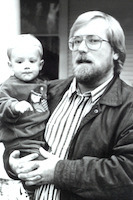
Various of us whose early sales were to Marion managed to hook up at conventions, this being before the internet made geographical separation irrelevant. I might have been introduced to Dave by Jennifer Roberson, another rising star I'd met through Marion, or perhaps we made our way to one another on our own. Dave and I discovered that we were not only writers of fantasy but martial artists. Dave's art was goju-ryu karate and today he is a senior black belt and instructor in that style. I'd met other writers who were also martial artists; it was like a secret underground, with the recognition of the discipline required, an appreciation of the balance of mind, body, and spirit. Not only that, most of us found our martial arts experiences sneaking into our fiction. This was certainly true for Dave!
The overlap of interests, the willingness to "talk shop," and the mutual respect for each other's achievements set the groundwork for a deeper professional relationship than merely one of having stories in the same anthology. Those early conversations were like threads that, woven together over time, formed a tapestry of community.
Dave's story, "A Swain of Kneaded Moonlight" arose from his questioning a time-worn trope: the damsel in distress in need of a rescue. Dave says, "the inspiration boils down to a simple observation that in situations where a male comes to the rescue of a damsel in distress, the damsel is usually playing a far more active role than the stereotype gives her credit for." Dave's stories can be gritty, romantic, action-packed, heart-breaking, but they are never predictable. This one's no exception.
Long ago, the story begins, silver dripped from a crescent moon. The drops fell upon the land and became the glimmering brides. They were magical women. The great men of long ago won them as consorts--whether by force, seduction, or contract--and sired children upon them.
The brides lingered in the known realms until their children were grown. When their mortal flesh had aged and its grip upon them loosened, they slipped away. Now they are the stars that wander in the skies.
Or so they say.
You can read the story either in The Feathered Edge or Raiding the Hoard of Enchantment, Dave's
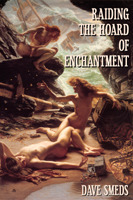
short fiction collection from Book View Café.

Published on April 02, 2013 01:00
March 6, 2013
On writing The Children of Kings
Marion's original concept for Darkover centered on the clash of cultures, so for this next book, I wanted to bring the Terran Federation back into the picture, but not in a nice sedate and friendly way, but in an OMG-terrible-crisis-about-to-descend-upon-us way. I also have long had a secret longing to run away to live with the chieri, and Kierestelli (Regis and Linnea's daughter, from Hastur Lord) kindly offered to take me.
Writing in the Darkover universe is very much like writing historical fiction. Marion explored so much of this world and its history that I can't "make it all up as I go along." One of the frustrating and yet exhilarating aspects of tackling a Darkover story is that Marion never let things like geography interfere with telling a good story. Although a number of fans produced maps of Darkover, she refused to endorse them, saying that she never knew when she might need to move things around. She also appreciated that Darkover had evolved as she herself had matured as a writer. In the Note From The Author for Sharra's Exile, she says,
One result of writing novels as they occurred to me, instead of following strict chronological order, was that I began with an attempt to solve the final problems of the society; each novel then suggested one laid in an earlier time, in an attempt to explain how the society had reached that point. Unfortunately, that meant that relatively mature novels, early in the chronology of Darkover, were followed by books written when I was much younger and relatively less skilled at storytelling.
For this tale set mostly in the Dry Towns, I used as background not only The Shattered Chain but a very early (1961) “proto-Darkover” novel, The Door Through Space. The Door Through Space contained many elements familiar to Darkover readers, from jaco and the Ghost Wind to the names of people and places (Shainsa, Rakhal, Dry-towns). Marion was exploring a world in which Terrans are the visitors, and adventure lurks in the shadows of ancient alien cities. She drew upon and further developed this material in The Shattered Chain (1976).
These books reflected the growth of Marion’s vision, but each of them was also part of the times in which it was written. 1960s science fiction novels were often tightly-plotted, fast-paced, and short by today’s standards. Most, although by no means all, protagonists were male, and female characters were often viewed from that perspective, what today we call “the male gaze.” By the middle of the next decade, publishers were interested in longer, more complex works. Not only that, the women’s movement and the issues it raised influenced genre as well as mainstream fiction, opening the way for strong female characters who defined themselves in their own terms. If Marion had written The Shattered Chain a decade and a half earlier, I doubt it have found the receptive, enthusiastic audience it did. Her timing (as with The Mists of Avalon or The Heritage of Hastur) brilliantly reflected the emerging sensibilities of the times.
Now we live in a different world. This is not to say that the previous struggles have been resolved, but that much has changed in the social consciousness from 1976 to today. In writing The Children of Kings, I considered how Marion’s ideas about the Dry Towns (and any patriarchal desert culture) might have changed over the last three decades. The Shattered Chain, with its examination of the roles of women and the choice (or lack of choices) facing them, focused on only a few aspects of the Dry Towns culture. What if we went deeper, seeing it as complex, with admirable aspects as well as those we find abhorrent? With customs that we cannot truly comprehend but must respect, as well as those that resonate with our own? With men of compassion and women of power?
As the Dry Towns developed in my mind, I turned also to the theme that had characterized the early Darkover novels—the conflict between a space-faring technological race and the marvelously rich and romantic Domains, with their tradition of the Compact and the laran-Gifted Comyn. And now, I add to that mix the ancient, kihar-based Dry Towns.
I hope you find this book as rich and rewarding to read as it was to write.
Writing in the Darkover universe is very much like writing historical fiction. Marion explored so much of this world and its history that I can't "make it all up as I go along." One of the frustrating and yet exhilarating aspects of tackling a Darkover story is that Marion never let things like geography interfere with telling a good story. Although a number of fans produced maps of Darkover, she refused to endorse them, saying that she never knew when she might need to move things around. She also appreciated that Darkover had evolved as she herself had matured as a writer. In the Note From The Author for Sharra's Exile, she says,
One result of writing novels as they occurred to me, instead of following strict chronological order, was that I began with an attempt to solve the final problems of the society; each novel then suggested one laid in an earlier time, in an attempt to explain how the society had reached that point. Unfortunately, that meant that relatively mature novels, early in the chronology of Darkover, were followed by books written when I was much younger and relatively less skilled at storytelling.
For this tale set mostly in the Dry Towns, I used as background not only The Shattered Chain but a very early (1961) “proto-Darkover” novel, The Door Through Space. The Door Through Space contained many elements familiar to Darkover readers, from jaco and the Ghost Wind to the names of people and places (Shainsa, Rakhal, Dry-towns). Marion was exploring a world in which Terrans are the visitors, and adventure lurks in the shadows of ancient alien cities. She drew upon and further developed this material in The Shattered Chain (1976).
These books reflected the growth of Marion’s vision, but each of them was also part of the times in which it was written. 1960s science fiction novels were often tightly-plotted, fast-paced, and short by today’s standards. Most, although by no means all, protagonists were male, and female characters were often viewed from that perspective, what today we call “the male gaze.” By the middle of the next decade, publishers were interested in longer, more complex works. Not only that, the women’s movement and the issues it raised influenced genre as well as mainstream fiction, opening the way for strong female characters who defined themselves in their own terms. If Marion had written The Shattered Chain a decade and a half earlier, I doubt it have found the receptive, enthusiastic audience it did. Her timing (as with The Mists of Avalon or The Heritage of Hastur) brilliantly reflected the emerging sensibilities of the times.
Now we live in a different world. This is not to say that the previous struggles have been resolved, but that much has changed in the social consciousness from 1976 to today. In writing The Children of Kings, I considered how Marion’s ideas about the Dry Towns (and any patriarchal desert culture) might have changed over the last three decades. The Shattered Chain, with its examination of the roles of women and the choice (or lack of choices) facing them, focused on only a few aspects of the Dry Towns culture. What if we went deeper, seeing it as complex, with admirable aspects as well as those we find abhorrent? With customs that we cannot truly comprehend but must respect, as well as those that resonate with our own? With men of compassion and women of power?
As the Dry Towns developed in my mind, I turned also to the theme that had characterized the early Darkover novels—the conflict between a space-faring technological race and the marvelously rich and romantic Domains, with their tradition of the Compact and the laran-Gifted Comyn. And now, I add to that mix the ancient, kihar-based Dry Towns.
I hope you find this book as rich and rewarding to read as it was to write.
Published on March 06, 2013 16:00
•
Tags:
darkover, marion-zimmer-bradley, the-children-of-kings
August 15, 2012
GUEST BLOG: Kyell Gold on Writing From The Heart
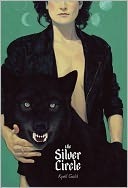 I had to become someone else to write the
I had to become someone else to write thethings that were
important to me.
Let me back up a little. You’ll hear this
phrase, “write
from the heart,” a fair amount as you navigate the world of
writing advice.
When I suggested the topic to Deborah, she immediately pointed me
to a podcast
in which Betsy Wollheim of DAW spent fifteen minutes giving just
that advice.
So I want to talk a little about why it’s important, why many
people don’t do
it, and how you can.
Writing from the heart is scary. It means
exposing yourself
to the world. In a way, it’s like having an intimate conversation
with hundreds
or thousands or (if you’re lucky) millions of strangers. It’s
talking about the
pain of breaking up, the fear of not having enough to eat, the
loneliness of
losing a parent, the depressing reality of falling short. It’s
talking about
falling in love, about the joy of discovery, about those words
your mother said
when you were six that you carried with you all your life. It can
mean
describing your journey from realizing you’re different to
realizing that
that’s okay.
If this scares you or disturbs you (in an
emotional sense
rather than a horror sense), that’s good. Tap into a place where
you’re not
comfortable: those are the raw places from which powerful writing
comes. You
guard them because they are important to you. And when they are
important to
you, that passion comes across in your writing. When you put
yourself on the
page, the reader can feel that, because your characters reactions
feel
authentic.
Here's how I did it: I’d been more and more
openly gay for about a decade when I
moved in with my then-boyfriend (now husband), but I still kept it
private from
my co-workers and other casual friends until I got a better sense
of how it
would be received. What was fueling my writing then was the urge
to show gay
characters falling in love, the way I was falling in love. And I wanted to write them in
the aesthetic I
was discovering, using animal-people to represent character
archetypes.
This was important to me, but it was also
scary, not just
because of having employers who knew, even then, how to use search
engines, but
also because I would be writing intimate emotional details. Hidden
behind other
characters, yes, but it would be exposing who I am in ways I
didn’t even do with
people I’d worked beside for years.
So I created a new identity. I wrote stories,
then a novel,
then another novel. Eventually, I wrote a book called “Waterways,”
about a
teenager coming to terms with his attraction to another boy. And
here’s where I
come to the part about why writing from the heart is important.
“Waterways” has generated and continues to
generate more fan
mail than any other book. I have gotten many, many e-mails from
teenaged boys
(mostly) telling me how the book changed their lives, made them
realize that it
was okay for them to be gay. I have heard from people who said
they didn’t
realize that gay relationships were about anything other than sex
until they
read my book.
Everyone has these intimate experiences and
secrets that they
keep close to them. One of the most terrifying things we face as a
human is
being alone. It’s why one of the oldest impulses we have is to
gather with
others of our kind. And when you read about someone, even a
fictional
character, going through the same things you did, that can be a
revealing,
momentous experience. That story will never move away, stop
talking to them,
pass away. It works the same for you, too. Turning your inner
demons into outer
fictional demons makes them a lot less scary; watching your
creations wrestle
them successfully gives you hope as well.
Think about the books that are important to
you. Chances are
they taught you something: that a goal was possible, that other
people felt the
same things you did, that what is important to you is important to
others.
As I became more comfortable in my
relationship, I thought
back to the first dates I’d had with other men, and how secretive
they insisted
on being. From the conflict between respecting my previous
partners' desire for secrecy
and my own growing realization that the best thing for gay rights
was more openness
came a book called “Out of Position,” a story about a gay activist
and a
football player falling in love. This one became my best-selling
book, I
believe in part because many gay couples right now are struggling
with exactly
that conflict. It explores the relationship from the viewpoint of
both
characters: Lee, the activist, and Dev, the football player. In
this small
scene, following a fight about being seen in public together that
ends with an
unexpected display of affection from Dev, Lee reflects:
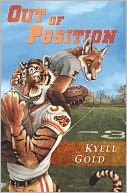
For
the past several months, I've been struggling to figure out who
I am. I thought
I knew. Running around with Brian, I was so sure of it, and so
proud, in many
senses of the word. For Brian to come back and cut like he did
hurt me, and
part of what hurt, of course, is the realization that he is
right. I am more
concerned with getting laid than with advancing the cause of gay
rights
everywhere.
And
what Dev did, just now, is take all that selfish behavior of
mine, that
betrayal of my Fellows of the Pink Triangle, and make it right.
Because
that's what being gay is about. No; that's what being alive is
about. It's
love. Whether we articulate it or not, what we're fighting for
is the right to
love whom we want in the manner we're born to. Sometimes we lose
sight of that,
in all the politics and symbolism we get caught up in. Dev just
reminded me of
it. This dinner, the look in his eyes, the night in the hotel in
Chikewa Falls,
it's all because I chose him over the movement. It's the
reminder that my
betrayal isn't really a betrayal. It's the exercising of the
rights we are
fighting for. That he came from where he did to the point where
he can express
affection—love—for me, that is a gift, and a victory.
A lot of that comes from my own experience and
struggle. Dramatized
for fiction, of course, but no less real for that. My latest book,
"Green Fairy," draws on some of my experiences with people being
not what they seem, and also touches on my own experiences with my
parents: estrangement and loss.
At the end of the day, writing from the heart
is good to do
not only because it will result in a better book, a more truthful,
passionate,
and real book. It’s important because when you write with passion,
you touch
the hearts of other people, and grow more in touch with your own.
----------------
Kyell Gold writes primarily anthropomorphic ("furry") fiction, often
centered around gay relationships. He has won twelve Ursa Major
awards for his novels and short stories. Out of Position
also won the Rainbow Award for Best Gay Novel of 2009, and in 2010,
his short story "Race to the Moon," published in "New Fables," was
nominated for a WSFA Short Story Award. Other strange things he
likes to write about include mystical decks of cards, superheroes,
and sports.
Waterways:
-Print: https://www.sofawolf.com/products/waterways
-E-book (Kindle):
http://www.amazon.com/Waterways-ebook/dp/B005FCFHGU/
Out of Position:
-Print: https://www.sofawolf.com/products/out-of-position
-E-book (Kindle):
http://www.amazon.com/Out-Position-Dev-Lee-ebook/dp/B003PPDAXQ/
Green Fairy
-Print: https://www.sofawolf.com/products/green-fairy
-E-book (Kindle):
http://www.amazon.com/Green-Fairy-Dangerous-Spirits-ebook/dp/B008RH0MC4/

Published on August 15, 2012 01:00
August 10, 2012
Jaydium, Chapter 6
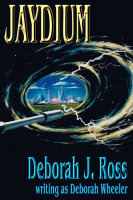
JAYDIUM
by Deborah J. Ross, writing as Deborah Wheeler
Chapter 6
"What=s
happened?" Kithri gasped. "Where the bloody hell are we?"
Eril didn=t answer. For the moment, he had no
ready answers. Adrenalin thrilled through his veins, bringing his vision into
sharp focus--every instrument on the scrubjet=s panel, every tone of green filling
the endless Plain, every brilliant mote of sunlight.
Silently they circled back and brought Brushwacker
to a halt on the wide, wind-scoured ledge. In contrast to the debris-strewn
entrance they=d
flown into, here they found ample room here to land. Otherwise, the treeless
purple-gray mountainside looked just like the one they=d
left, but that was the only familiar feature of the landscape.
Kithri yanked the door open and jumped
out, Eril at her heels. "The Plain, the dust--it=s
gone, all gone!" she cried. "Where--oh god, where did all those trees
come from? Even the sky looks different, it=s..." Her voice trailed off into a
whisper. "It=s
so beautiful..."
Eril had to agree with her. Standing
there open-mouthed and momentarily speechless, he could see for hundreds of
miles, clear to where the dazzling azure sky melted with the forest in a thin,
hazy line. From this height, the expanse of green resembled a felt-topped
gaming board. He=d
seen forests before, on Terillium where he was born and the two worlds where he
saw ground action, but compared to this one they were nothing but pale,
manicured gardens. He imagined tigers prowling the depths, hunted by
spear-wielding woodmen who guarded the ruins of once fabulous cities, the last
remains of a race of galaxy-spanning telepathic tyrants...
Argh!
I must have seen too many bad tri-vids as a kid. But his nerves hummed with
a familiar tingle and his confidence soared. If it wasn=t
woodmen out there, it was something else...something wild and wonderful...just
waiting for him...
"Wh-where are we?" Kithri
grabbed his sleeve. "We can=t
be still on Stayman, can we? Then how did we--What the hell is going
on?"
Eril put one arm around her shoulders
and grinned. "One colossal adventure."
She jerked away from him, scowling.
"Be serious."
"I am serious!"
"Then where are we?"
"Looking at it logically, we must
still be on Stayman," Eril said. "No insult intended, but your little
>jet
isn=t
exactly spaceworthy. For another thing, look out there and imagine this place
without all the trees. You=ve
got the mountains here," he pointed, "the Plain out there, just the
way it was before. Come nightfall, I=ll
bet we even see the same constellations. So what d=you
think, have we fallen down a one colossal time-travel hole, or what?"
"It=s-- That=s just not possible. All we did was fly
down a tunnel and back out again, the same as always." She still sounded
confused, but less panic-stricken than a moment ago. "That spacer=s
suit is so old... You think we=ve
somehow gone back to his time?" She hugged her arms to her body and
shivered. "No! Things like this just don=t happen!"
He grabbed her elbow and pulled her
towards the scrubjet. "C=mon,
let=s
take a closer look."
Kithri=s voice suddenly regained its usual
edge. "Not a chance, fly-boy. I=ve
got a half load of jaydium that=s
decaying by the minute. Not to mention what we=re going to do with our friend in the
suit."
Eril clambered into the scrubjet and
folded himself into the co-pilot=s
seat. Kithri might have a point about getting back, but he refused to worry. In
five years of dog-fights and sabotage missions, he=d
always found a way out of the tightest corners. Now he figured his luck hadn=t
deserted him, it had presented him with a plum.
He looked back at her and said, as
reassuringly as he could, "Trust me, I=ll think of something. But later, after
we=ve
had a chance to look around. We can=t
just turn around and go back, not with a whole new world waiting for us out
there." He added, seeing the stubborn set of her chin, "You can have
my half of the haul, if that=s
what=s
bothering you."
The corners of Kithri=s
mouth twitched in something that might have been a smile. It was more than Eril
expected. She climbed into the pilot=s
seat. "You owe me."
"I got you off Stayman, didn=t
I?"
She laughed, a little nervously.
Activating shipbrain=s
automatic radio frequency search, she began their descent from the ledge. Eril,
thinking of his woodmen, added infrared and motion scans. Neither of them were
much surprised when the first sweep turned up nothing more than small birds and
insects.
As they passed below the treeline, the
first hardy conifers multiplied into a dense, exuberant mass, their needles
almost blue-black. Down a little further, bright green deciduous species
infiltrated the evergreens. Eril could almost smell the profusion of scents
through >Wacker=s
air seals. He marveled at how many shades of green there were, more than he=d
ever imagined possible.
The forest canopy no longer presented
an unbroken appearance. Here and there the flinty, leafless trunks stood vigil
over blackened patches, encircled by vigorous younger growth. Sometimes the
forest thinned around patches of brush and grass.
"Eril, look! Three o=clock!
See it?"
Eril caught a glimpse of something blue
and orange, shaped like a giant butterfly, darting from one leafy shelter to
the next. Kithri swung the >jet
to follow but it vanished as quickly as it had appeared.
Later they saw reflections of water
running like silver veins along the forest floor, and once the infrared
scanners picked up the distant, smoldering remains of a fire. Suddenly a huge
meadow, frosted with yellow, crimson, and lavender, opened out below them.
"Flowers!" Kithri cried out.
"Fields of flowers! Look at them!"
She sent Brushwacker in a ragged
dive. Eril=s
teeth rattled as she dropped the scrubjet on the field. She scrambled out in a
time that would have earned her an Academy record and bolted through the waving
knee-high meadow. She fell to her knees and stretched her arms wide, gathering
sweeps of flowers to her breast.
The field sizzled with midday heat and
the insistent whine of insects. Eril took a few steps and was quickly inundated
by color and head-spinning scent. He stopped to snap off one long-stemmed
lavender blossom and run his fingertips over the wedge-shaped petals. They were
surprisingly rigid and gave off a faint vanilla scent. The pollen grains that
clung to his hand were deep blue. Scattering whirring creatures, he waded
through the tall stalks to where Kithri knelt.
She lifted her face to him as she
accepted the flower. Her cheeks were flushed and wet. "I thought I=d
never see fields like this again," she said in a husky voice. "It=s
just like when I was a kid."
"Oh. Where was that?"
"Albion," she murmured,
dropping her eyes.
Eril had heard of Albion=s
flower fields and how the planet was so beautiful that no one emigrated. He
wondered why Kithri had. "I=m
sorry."
She glanced up again, and this time he
had to look away. There was something behind her eyes, some shadow that threatened
to rise up and engulf him. He hurried back to the scrubjet and lounged against
the opened door.
Albion. By all the powers of space, no
wonder she=s
so wary of anything remotely military.
Eril had seen Albion only once, from
space, a cloud-laced blue-and-green pearl, but he=d had no chance to appreciate it. He
and Hank were in the team Weiram had dispatched behind the far moon, holding
them in reserve against the impending stalemate. It was a sensible tactical
move that took everything into account, everything except the desperation of
the Alliance raiders. Eril had seethed with frustration at being ordered away
from the center of the action.
Battle-fever scoring his nerves, he=d
watched on the scanners as the fight turned in favor of the Federation. Behind
him, in the co-pilot=s
seat, Hank wondered aloud how soon the surrender would come. Then, without a
shred of warning, a blanket of electromagnetic noise paralyzed the stinger=s
scanners. The static deafened his ears for a terrifying moment.
As soon as he could move his hands on
the controls, Eril sent his ship darting out from the moon=s
protective shadow. The struggle was all but over, so what had happened? Where
was the battle? Where were the Federation ships, poised for the kill?
A snowstorm of tiny fragments glittered
momentarily in the holocaust that had once been a planet. Eril slowed, unable
to believe his eyes. Numbly he thought, That mote of fire was once the
flagship, that one a stinger, that one a medic unit, that one a living human...
Then he could see nothing at all.
When Eril=s light-seared vision cleared, the
sparkling cloud was gone. The fireball had already begun to dim. As he and Hank
drifted and waited, their communications equipment damaged past repair, he
heard someone weeping--dry, heart-shredding sobs.
Now, three years later, leaning against
a tenth-rate scrubjet on an unknown planet, Eril shied away from the memory.
It must have been Hank sobbing in the
darkness. It must have been. He was fine, just fine. The medics had
cleared him of any radiation damage. He=d
made it out of the war alive and with a bucket of medals, hadn=t
he?
In the middle of the field, Kithri
jerked upright, and the movement caught his eye. The flowers in her arms had
darkened, wilting. She brushed them from her, letting them drop as she got to
her feet. The broken flowers lay in a little heap.
As she came toward him, Eril saw she
still held the one he=d
given her. Its inky petals drooped like the tentacles of an octopus. When she
reached the scrubjet, he could smell its rankness. She paused, her eyes
flickering to the mangled blossom, and dropped it.
Eril took a deep breath and wished he
hadn=t.
The whole field reeked with decay. Even his saliva tasted bitter. Silently he
climbed into the co-pilot=s
seat and slid his hands over the controls. They felt familiar and solid.
Kithri scrubbed her face with the back
of her hand, slipped in front of him, and pulled the door shut. "So much
for flower fields," she said in a voice tight with secrets. "Let=s
see what else this place has to offer."
Neither of them said anything about
going back.
o0o
If you can't wait to find out what happens next, you can download the whole thing from Book View Cafe
(And the files will play nicely with your Nook or Kindle, as well as
other devices). If not, come on back next week for the next episode...

Published on August 10, 2012 01:00
August 9, 2012
Deborah Holds Forth on Point of View

SF Signal's MIND MELD just concluded a two-part discussion on Point of View (that's POV to the acronym-enabled), hosted by the wonderful Paul Weimer. Yesterday, I strewed links to it about the intarwebs, with snippets of my favorite parts. Today, I'm sticking my own oar in.
First of all, I'm struck by how every writer I know has an opinion about POV, and a personal preference as well. It's rare to hear someone say she enjoys writing ominiscent third every bit as much as first person. We've all got our quirks, shaped by our personalities, our experiences as readers, and what books on writing we've read or teachers we've studied with or editors we've worked with.
Second, I loved that the writers did not agree with one another. There is no "party line," no singular truth about "which is better." (See my first point.) The obvious explanation is that different POVs are better suited to different types of stories. Sure thing. The less obvious explanation is that POVs are subject to cycles of popularity. Today the publishing world values the 3 i's: immediacy, intensity, and intimacy. This hasn't always been so, and may not continue to be so. The Victorian writers embraced omniscient third, and saying that their work was therefore inferior is a bit like saying Baroque music isn't as good as Romantic because it has more ornamentation.
So here's my take on the issue. Far too many beginning writers fall in love with first person.
First person carries with it a temptation to writerly arrogance. I might venture to suggest it creates it because of the splash and ease of angsty melodrama. We don't have to consider all the nuances of a character's behavior, movement, speech pacing, posture, vocal tone, word choice, what details he notices and which he ignores, not to mention those he doesn't see but which are important, in order to know what he's feeling. He tells us in so many words, and we get lazy.
Writing in first person is like walking a tightrope with blinders on. It's far, far harder to do well than it looks. There's so much we can't do, and so much we can and should but don't because of this illusion of emotional accessibility. Well and appropriately done, it's a marvelous feat of skill and control. It's just too dratted easy to do poorly.
As writers, we have an immense amount to learn from actors, not to mention screenplay writers. Because they can (generally) tell a story only from the outside, they pay close attention to all the ways humans communicate. In many ways, third person, whether tight or distant, encourages us to incorporate these dimensions.
Here's what Judith Tarr had to say, very much in line with my own thoughts: For me, the most intimate mode is third person limited. I find that most
transparent, though it has its own quirks (on which more below). First
person would seem to be the most direct way to get into a story,
wouldn’t it? But it’s not. As soon as your narrator uses that “I,”
there’s a filter between the reader and the story, namely, the
personality and viewpoint of the person telling it. Third person removes
the filter, so it’s just the reader and the character–though the author
can and will create a bias through word choice and selection of
details, reactions, etc.
I'm as guilty as the next one of indulging in first person, thinking I was making the story more vivid and immediate. Through many missteps and some very sage feedback, I began to question my choice of POV. Rewriting in third was an eye-opener. It revealed all the places I'd skimmed over crucial material, all the lazy assumptions...in other words, sloppy writing disguised under overemotional first person POV. I set aside first person, with considerable respect for its power and seductiveness, and worked on craft issues. I do sometimes write in first now, but only when it is the best way to tell the story, when the strengths of this POV are assets, not smoke-screens for poor writing.
This may not be true for every writer. I certainly hope it isn't. I'm happy to admit that we each have our temperamental preferences, and perhaps I am leery of first person for reasons peculiar to myself. I'm even more suspicious of wedding myself to only one POV -- first, tight third, flexible third, omniscient (I won't even discuss second; I've never been able to read or contemplate writing it.) One of the tasks of a beginning writer, as I see it, is developing as broad a range of skills as possible, as big and varied a tool chest. First person POV certainly belongs there, but if all you have is a hammer, everything looks like a nail. As glitzy as first person is these days, I think it should be handled with great care.
Your mileage may vary. Please jump in and let me know what you think!
Image by Bcjordan from work by Alex Shunkov, licensed under Creative Commons

Published on August 09, 2012 13:45
August 8, 2012
The Writer's Life: Listening

Whenever I hear of a friend or relative -- or a strange, I'm not picky! -- in distress, I want to jump in and fix their lives. It's so much easier dealing with someone else's problems than my own. Besides, I am at times the world's authority on everything (things and times being variable). So, I do my best to keep my mouth shut.
I'm long since realized what a disservice I do to those I care about by butting in with unasked-for advice. It doesn't matter whether my perspective is correct and my facts accurate, or that what I suggest would work a whole lot better than what they're doing. What matters is that these are my facts, my solutions, and I have usurped the resourcefulness of the other person and denied them the dignity and the growth of finding their own way through a problem.
Not only that, and more importantly for the purposes of a writerly blog, I haven't listened. By filling my mind with problem-solving instead of attending to experience and emotion, I've cheated myself out of a priceless opportunity to glimpse life through someone else's eyes. I've also deprived them of perhaps the most precious gift a friend can offer, a compassionate and undemanding ear.
Some time ago, a writer friend who was going through a difficult divorce told me that her therapist had been amazed at her ability to understand and empathize with her spouse's point of view. She was puzzled by this response. As writers, we cultivate our creative imagination, the insight that gives us a window into characters very unlike ourselves. While I'm not suggesting that things told to us in confidence should be fodder for the creative grist mills, I do believe that careful listening, deep listening, can make us better writers as well as better friends.
Painting "Friends" by Jerry Weiss, 2003; licensed under Creative Commons.

Published on August 08, 2012 12:09
August 6, 2012
GUEST BLOG: Sherwood Smith on Monarchy in Fantasy
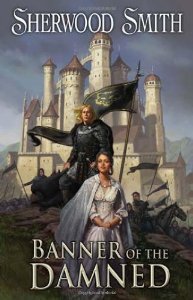
What is it with fantasy stories and monarchies? Isn't there any other form of government?
Two words, power and privilege.
What’s not to like?
What’s not to hate?
Whatever those words evoke to us, it’s usually not boredom. Human beings are hierarchical. You take any group, no matter how determined they are to interact with sensitivity and equality, and a leader somehow emerges. That’s in situations that have the luxury of safety. In emergencies or danger, people turn desperately to anyone who can show them the way out, whether it’s by fighting or fleeing. The successful commander who becomes monarch is as old as history.
Monarchs make government personal, and most readers want stories about people more than they want stories about the function of politico-economic theory, for pretty much the same reason people at work gossip about the boss’s likes, dislikes, and private life. The doings of people in power are interesting, especially when they can impact you, but even when they won’t. Look at all
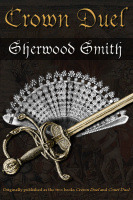 the celebrity chasers busily reporting on the often fatuous actions, opinions, marriages and breakups of our king-substitutes, actors.
the celebrity chasers busily reporting on the often fatuous actions, opinions, marriages and breakups of our king-substitutes, actors. W moderns seem to prefer stories about kings and queens from the days when monarchs were colorful figures in preference to today’s reclusive royalty who, wearing business suits like everyone else, appear only for photo ops and ribbon-snipping. The old kings had more power, but they also had to generate their own PR by looking like kings: when they traveled past you, with outriders and banner snapping and horses caparisoned to a fare-thee-well, you knew a king was passing.
I have heard people on science fiction panels scoff at SF and F about monarchs, but the truth is that for most of human history, until very recent times, monarchy of some kind or another constituted the outer form of government. And as we know even in recent history, leaders who called themselves by other titles, whether president, Führer, chairman, or Dear Leader, functioned pretty much in all other respects as monarchs. We know of politicians right now who would very much like to have the power of kings, and are torquing the democratic system to get it.
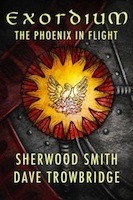
In the simpler, more plot-driven story, the monarch is often nothing more than a factor for action. This leader is all-powerful, without much examination of the nature of that power, or its history, other than perhaps a vague hand wave toward inheritance or even divine right (which can be disconcerting in a story that otherwise contains little reference to religious paradigm). Bad monarchs are mean to peasants, hurt the helpless, and their favorite sport seems to be going out a-conquering. We want to see them brought down. Good monarchs have time to be kind to all, spread peace and plenty, and defend their kingdoms against the invaders. We want to see them preserved as a force for order.
In more character-driven stories, monarchy itself is examined, its features and bugs. Character-driven SF and F novels examine the friction between various powerful interests within a kingdom, whether or not the story includes a threat from without. They illustrate the effects when the nature of monarchy changes.
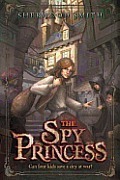 Stories about monarchs have been around as long as there have been monarchs. As far as fiction is concerned, it was Sir Walter Scott who first gave us novels about the doings of kings and legendary heroes from the perspective of ordinary people. The ancient fascination with those in power still grips the imagination, but equally interesting can be the attitudes of the governed. What makes someone willing to bend his knee to the monarch? To kill for him or her? What is the personal cost of that much power?
Stories about monarchs have been around as long as there have been monarchs. As far as fiction is concerned, it was Sir Walter Scott who first gave us novels about the doings of kings and legendary heroes from the perspective of ordinary people. The ancient fascination with those in power still grips the imagination, but equally interesting can be the attitudes of the governed. What makes someone willing to bend his knee to the monarch? To kill for him or her? What is the personal cost of that much power? Finally one comes full circle, to the hero’s tale, wherein the ordinary person gains a crown.
Sherwood's latest book, Banner of the Damned, is about the personal cost of power,
and whose next, a middle grade fantasy called The Spy Princess, is about
revolution!
When twelve-year-old Lady Lilah decides to disguise herself and sneak
out of the palace one night, she has more of an adventure than she
expected--for she learns very quickly that the country is on the edge of
revolution. When she sneaks back in, she learns something even more
surprising: her older brother Peitar is one of the forces behind it all.
The revolution happens before all of his plans are in place, and brings
unexpected chaos and violence. Lilah and her friends, leaving their old
lives behind, are determined to help however they can. But what can
four kids do? Become spies, of course!
Find more of her ebooks (and a free short story) at Book View Cafe.

Published on August 06, 2012 01:00
August 3, 2012
Jaydium, Chapter 5

JAYDIUM
by Deborah J. Ross, writing as Deborah Wheeler
Chapter 5
For a moment Eril considered telling
her the truth, that he had as much chance of getting into the Corps without her
as she had getting off Stayman without him. In the mood she was in, she=d
probably tell him to stuff a comet up his pitouchee. The only thing to
do was to keep his mouth shut and wait for another opening. He hoped he=d
get one.
Kithri picked up the water bottle, took
a long swallow and then dropped it, sputtering. She pointed down the tunnel.
As he followed her gesture, Eril=s
mouth went electrically dry. The last time he=d looked, the tunnel had been empty
except for the two of them and the scrubjet. Now a man-shaped mist hovered in
the middle of the >hole,
one moment diaphanous, then condensing into near solidity. In stark contrast to
the rosy glow of the partly-sealed jaydium, it was a clear, untinted gray. Eril
made out a bulbous head, two arms, and two splayed-out legs. He thought he saw
markings on the head section, but they faded so quickly he could not be sure.
"What the hell is that?"
Kithri whispered. "I=ve
been running these tunnels for years, and I=ve never seen anything like it."
"Space ghost," he said,
dredging his memory. "They=re
sighted along the old interstellar routes. There are only about six or seven
documented cases known, never this close to a planet. By our best guess, they=re
relics of early attempts to exceed the speed of light. Residues of energy that
just happen to be shaped like humans. They probably don=t
actually exist in three-space."
As he spoke, the figure descended until
its feet seemed to touch the tunnel floor. For a moment it stood there,
motionless. Then it began to move. First one leg and then the other stretched
out and swung back as it drifted along in a mechanical parody of walking.
"Whatever you are," Kithri
called out, "you stay away from my ship!"
"There=s
no danger. The ghost can=t
interact with ordinary matter," Eril said with a confidence he did not
feel. It was one thing to listen to a lecture on "quasi-dimensional
oddities" when you were sitting safely in an Academy classroom, and quite
another to confront one in the middle of a jaydium tunnel.
"There=s
nothing to worry about," he repeated. "It=ll
dematerialize again in a moment." I hope.
Moving one awkward step at a time, the
shape continued to advance, not toward the two humans, but the scrubjet and its
precious cargo. Kithri jumped to her feet, as tense as a coiled dust-viper.
"I don=t
care what that thing is, if it messes with my >jet--"
Eril grabbed her hand. "You stay
here. I=m
going in for a better look before it disappears."
He shoved her bodily behind him and
took a couple of steps towards the diaphanous figure. For a moment he wondered
if her instincts might be right about the thing=s innocuous nature. A familiar thrill
shot down his spine, reminiscent of the moments before his first battle in
space. He=d
been just as terrified as all the other rookies, but he=d
never before felt so intensely, exhiliratingly alive.
Maybe Eades was right. Maybe he was
some kind of thrill junkie, a real glory-boy.
The ghost was close enough to the
scrubjet to touch it, still floating stiff‑legged, as if all its joints were
frozen. It stretched out one thick‑fingered hand, now clearly visible as it
took on greater and greater solidity. Eril saw the arm reach for the curved
side of Brushwacker--
"No!"
Kithri screamed. She shoved him aside with surprising force and lunged for the
scrubjet.
Eril grabbed her shoulders and jerked
her to a halt. She pushed against him, hard. He wrestled her around to face
him, holding her close to his chest. She wasn=t trying to hurt him, just struggling
ineffectively to get free.
"Calm down!" he said.
"There=s
nothing to be--"
Kithri twisted away and dropped her
weight, breaking his hold. Too late, Eril realized that in their struggle she=d
slipped his force whip out of its shoulder holster and was now pointing it at
the shape leaning towards her ship.
Ineffective, indeed!
He=d
never underestimate her like that again.
Aiming mostly by instinct, Kithri
pushed the force whip trigger, a broad, flat lever set in a protective groove.
Eril grabbed for the weapon, but the beam of the whip was already arcing
through space. It touched the phantom shape and exploded in a tiny noval flare.
Eril gasped as a shock wave rattled his
teeth. Tears blurred his vision, but not enough to obscure the figure still
looming towards the scrubjet.
Kithri raised the whip again, this time
holding it in both hands and carefully sighting down the barrel. Eril caught
her hand, pulling it backwards before she could press the firing stud again.
"You idiot, it=ll
go away on its own!"
"Skies damn you, Eril! If you won=t do
something about it, I will! I won=t
let that thing mess with my ship!"
Kithri yanked the force whip around
again. It lashed out, this time in a wide, unfocused sweep. She clung to the
firing button, despite Eril=s
attempts to pry her fingers free. The whip beam spiralled downwards to touch
the point of the specter=s
shoulder.
A blast of air and searing brightness,
many times more powerful than the first, stunned Eril. In an instant, the
breath was stolen from his lungs, the strength from his muscles. He staggered
under the sudden impact of Kithri=s
weight and they both went down.
The light gave way to enveloping
darkness. For an agonizing moment, Eril was afraid he=d
been blinded. He struggled to sit upright, blinking furiously.
"Of all the comet-brained things
to happen..." moaned Kithri.
"I warned you," Eril
grumbled. "We had no idea how the whip=s energy would interact with that
thing. I=ll
bet your damned heroics haven=t
even touched it. The ghost will disappear in its own sweet time when the
dimensional gap shifts. Meanwhile, there=s
no way we can duo that jaydium back now. We=re
half blind ‑‑ hardly fit to fly--or at least I am. Can you see anything yet?
"No...yes, I think that blob is >Wacker."
Her voice took on a new urgent tone. "Eril! There=s
something on the ground next to it."
Eril forced himself to concentrate on
the gray soup before his eyes, with very little success. "Don=t
trust your vision, not so soon after a blast like that. Our eyes were pretty
well dark-adapted‑‑"
"Stuff it!" She pulled
herself free and clambered to her feet. "There is something.
Something that wasn=t
there before."
Eril=s vision cleared as he stumbled after
her towards the nebulous shape of the scrubjet. Tone-on-tone gray replaced
velvet black, slowly resolving into the outlines of objects. No rosy glow came
from the cut jaydium face. It must have become sealed under a layer of
protective ash, quicker than he=d
thought possible.
They were almost on top of the sprawled
figure before he was able to make it out. The thing was flat gray instead of
its previous luminous transparency. The bulbous head absorbed light without any
hint of gloss.
Eril touched it cautiously with the tip
of one boot. The surface yielded like stiffened cloth. His vision cleared a little
more and he saw--not a ghost, nor any inhuman figure--but a Terran spacesuit of
ancient design.
"There=s
someone inside!"
"He=s not a space ghost, that=s
for sure," came Kithri=s
voice from beside him. "But what--who is he?"
Without waiting for his answer, she
knelt down. Eril crouched beside her and began searching for the seals of the
globe helmet. In a few moments, he found the primitive lock‑clasp. As they
wrestled the helmet free of its moorings, he wondered what they would find
inside--a human spaceman, in all likelihood long dead--or something else, some
horrendous relic from the depths of space? A thrill raced along his nerves.
The opaque globe came free with a snap
and a burst of humid but not stale air. Inside was no desiccated corpse, but the
fully fleshed head of a living man, lolling in unconsciousness. Eril shoved the
helmet into Kithri=s
hands and ran his fingers along the man=s
neck. The flesh felt warm and resilient under his touch. "I=ve
found a pulse, slow but he=s
alive."
Kithri sat back on her heels.
"Where did he come from? How did he get from deep space to the middle of
this tunnel? And, more to the point, what are we going to do with him?"
"Take him back to Port
Ludlow," Eril said. "He seems stable enough to move. He=s
breathing regularly and his pulse is steady. Do we have room for him in the
hold?"
Kithri considered for a moment.
"We=ve
more than half a load of jaydium, but if we leave the sealing equipment here,
we can make it. It=ll
be a tight fit."
"Don=t worry. Our friend here is in no
position to object."
Kithri insisted on reorganizing Brushwacker=s
hold by herself. She managed to create a space large enough for the spaceman.
Together they lifted him in and strapped him in place.
As they flew back through the tunnel
maze at duo speed, Eril marvelled again at the sensitivity of Kithri=s
handling of the tiny ship. By all the powers of luck and space, he wasn=t
wrong in what a great team they=d
make! Look at the way they=d
gone into action together to detach the spaceman=s helmet. She might be impulsive, but
that was no crime. So was he. And to fly duo with her, not down some
cramped jaydium tunnel in a patched‑up scrubjet, but through the starfields in
a proper ship...
They burst from the tunnel into solar
brightness. Kithri cried aloud and dropped them jarringly out of duo.
The pain of Eril=s
watering eyes blanketed a fleeting moment of erotic backlash. He squinted
reflexively. The quality of the light was too vivid, as if somehow cleansed of
the omnipresent dust. He leaned forward and looked down over Kithri=s
shoulder.
No barren plain lay at the foot of the
Manitous, no endless expanse of rock and drought‑tortured scrub. No curling
plumes of dust where trails had carved through the fragile crust.
Forest.
Lush, exuberant green stretched as far
as his eyes could follow. Shade upon shade of it filled the bowl of the Plain
and spilled on to the sheer sides of the mountains. Trees massed so close and
dense they seemed to be a single growth.
"Eril..."
"I see it," he said in the
same hushed tone. "I see it. But I don=t believe it."
o0o
If you can't wait to find out what happens next, you can download the whole thing from Book View Cafe
(And the files will play nicely with your Nook or Kindle, as well as
other devices). If not, come on back next week for the next episode...

Published on August 03, 2012 01:00
July 31, 2012
GUEST BLOG: Catherine Lundoff on “Adventures in Marketing: Promoting My First Novel”
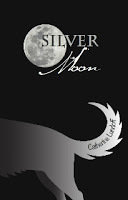
Book promotion: the thing most
of us love to hate but have to do. What follows is an overview of what I did
before and after my first novel was published in May, 2012.
Back in the misty regions of
2011, my publisher (Lethe Press) and I agreed that my first novel, Silver
Moon, would be published in 2012. Armed with a copy of Jeff VanderMeer’s BookLife,
I started planning. I knew I was going to need all the marketing help I could
get and practice makes perfect and all that.
I started
out by trying to define my book. I had to understand what I was selling, apart
from “my first novel.” Silver Moon is
a novel about a menopausal woman who turns into a werewolf. It is also about
developing a community and starting a new life. And my protagonist begins to
come out as a bi woman over the course of the novel. It is not, however,
primarily a romance nor is it erotica. This description helped me identify possible
target audiences for the book: older women, werewolf fans, fans of LGBTQ
fantasy, general fantasy readers, etc.
Then I moved
on to what I had to work with.
Pros :
5 other books written or edited and a number of
short stories published = name recognition
Awards received for existing books = more name
recognition
Working with the same publisher (Lethe Press) I
had worked with for my other books = consistency
Reviewers and a (small) fan base familiar with
and friendly to my work = existing foundation for a launch
Existing social media presence, blogs,
professionally-designed website = means of promotion under my control
Membership in several organizations that would
support my book promotion (Broad Universe, Outer Alliance, SFWA, etc.) =
opportunities for outreach as well as networking with other authors
Cons :
Primary name recognition in another genre, and all
my current work is under my own name
Name recognition is not approaching cult figure
status, let alone bestseller status
Fairly small promotional budget
My novel is not primarily a romance and has no
erotic content (romance and erotica are the bestselling genres in LGBTQ
fiction)
I had written a fantasy novel featuring
werewolves and a protagonist who was not a teen
Once I defined what I was selling and who I wanted to market the book to, I made a list of reviewers and bloggers who I thought might like the book. This list was based on favorable reviews of similar books or having worked with them in the past. In addition, I made a list of venues to approach for readings. I also kept my eye out for podcasts that were looking for guests and for guest blogging opportunities.
Then I picked WisCon, the annual feminist science fiction convention that takes place each May in Madison, WI, for the book launch. I had done a previous book release at WisCon and had a 20-year history with the con, so I was reasonably confident that I could sell a book about a fifty-year-old woman who turns into a werewolf to some of the attendees. I would also able to combine my release with the Outer Alliance party at the con.
I kicked off pre-promotion for the book several months before it came out, doing readings at the following: Marscon 2012, a science fiction reading series at DreamHaven Books, a multi-author reading at Quatrefoil Library in St. Paul, a blog interview on Out in Print and a podcast on lesbian and bi werewolves, all in March.
Then I set
up a reading at Women and Children First Bookstore in Chicago the weekend
before WisCon. I also set up a reading at Outwords Books in Milwaukee for the
week in between Chicago and Madison. I should mention that I knew that these
two bookstores existed and hosted readings because other authors recommended
them to me. Networking is my friend.
At the
beginning of April, I wrote up a press release and sent it to bookstores,
review sites and other venues that I wanted to approach. This gave me a way to
introduce myself to all of the various venues I hadn’t worked with before. By
the time my ebook and print ARCs of Silver
Moon showed up, I had created a list of 25 review venues and book bloggers.
“25” was an arbitrary number that seemed achievable with the rest of my life schedule.
Then I did
the following:
A
Goodreads giveaway of two ARCs to stir up interest in the book
One ARC
and a press release sent to Write On! Radio on KFAI (Twin Cities radio
show)
One
ARC and a press release to the SF Site in hopes of getting a review
and on the New Titles list
A
request/proposal for a Big Idea post on John Scalzi’s blog, Whatever
Networking
with other werewolf fans, readers and writers on Twitter via #werewolfwednesdays
to announce the book launch
ARCs
and press releases sent to three werewolf bloggers with a lot of site
traffic
Panel
proposals to upcoming conventions to ensure that I had visibility and a
chance to mention my book
ARCs
and press releases to several podcasts and fantasy blogs
Press
release to a local bookstore for a Twin Cities reading/signing with mystery
author Jessie Chandler
ARCs
to the 15 or so reviewers who expressed an interest in the book (I got a
few refusals/no responses but I also got requests and new invitations from
blogs and magazines I hadn’t approached initially)
How did it
go? Well, to sum up, I did 5 guest blogs, four podcasts, three interviews,
three bookstore readings, four conventions that included panel appearances and a
reading/interview on Write On! Radio. Next up, I’ll be doing a taped interview
and reading for a public access show on writing and three more conventions
(Diversicon, Worldcon, Gaylaxicon), all with readings and panel appearances.
The book has been reviewed on multiple blogs and review sites including Publisher’s Weekly and Lambda Literary Reviews. And I did all
this over the course of about three months.
Did it
work? Honestly, I don’t know yet. The book has more buzz than my other books
and my publisher says it’s doing well but I haven’t seen my sales figures yet.
Even when I do, small press books take awhile to find their people, as a rule;
sales figures for the second half of the year may be very different. Was it
worth it? Definitely! Best con moment ever was having my Big Idea post run on
the Thursday of WisCon weekend, which resulted in me meeting many swell people.
Am I exhausted? Um, yes.
The moral
of the story is, I guess, that research and persistence can pay off when it
comes to publicity. There is no one way to promote your book but planning can
only help. Finally, take the long view. You’re in it for that book and the next
one and the next. A bad week on Amazon is not the end of the world. Good luck!
Now I’m off to go do some more promo before bed.
-------------------
Catherine Lundoff is the two-time Goldie Award-winning author of Night’s Kiss (Lethe Press, 2009) and Crave (Lethe Press, 2007) as well as A Day at the Inn, A Night at the Palace and Other Stories (Lethe Press, 2011) and Silver Moon: A Women of Wolf’s Point Novel (Lethe Press, 2012). She is the editor of Haunted Hearths and Sapphic Shades: Lesbian Ghost Stories (Lethe Press, 2008) and the co-editor, with JoSelle Vanderhooft, of Hellebore and Rue: Tales of Queer Women and Magic (Lethe Press, 2011). http://www.catherinelundoff.com>
Links for buying Silver Moon:
Lethe Press - http://lethepressbooks.com/lesbian.htm
Amazon.com - http://tinyurl.com/bwgsz9f
IndieBound - http://www.indiebound.org/book/9781590213797

Published on July 31, 2012 01:00



